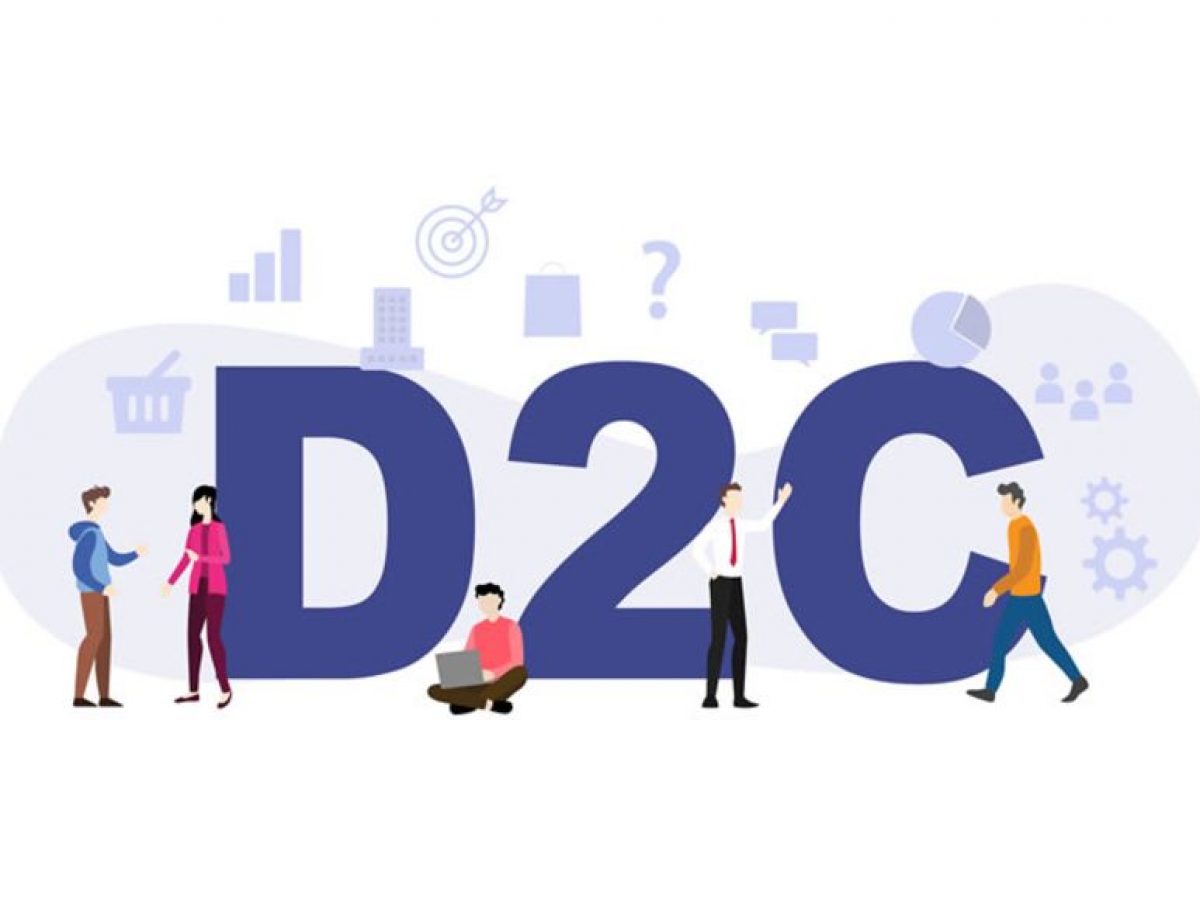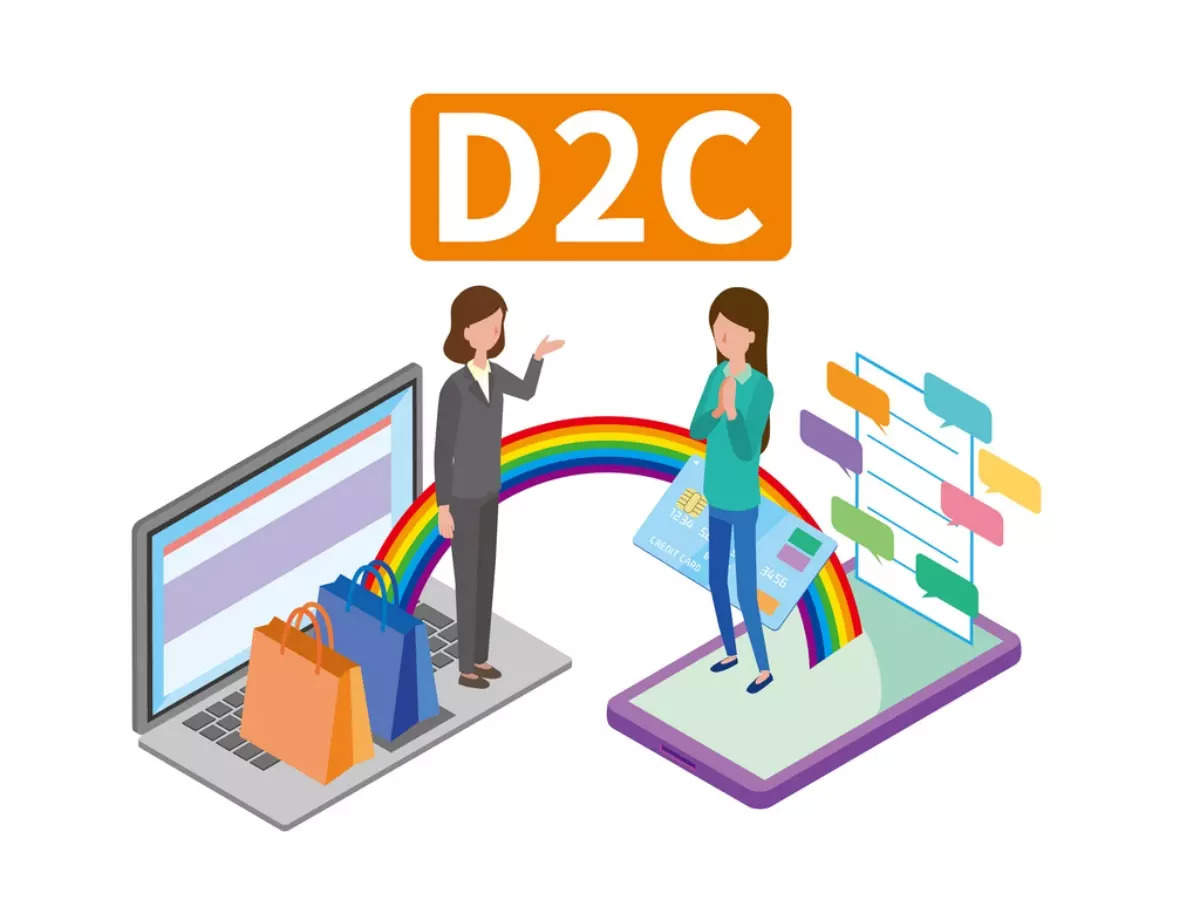Evolution of D2C
The concept of D2C is not entirely new and has its roots in mail-order catalogs and door-to-door sales. However, with the advent of the internet and e-commerce, the D2C model has undergone a significant transformation. Today, D2C brands leverage digital platforms to reach a global audience and offer a seamless shopping experience. Read about What is B2B and B2C Sales

In recent years, we’ve witnessed a surge in D2C brands across various industries, including fashion, beauty, wellness, and consumer goods. These brands are disrupting traditional markets and challenging established players with their innovative products, unique branding, and direct-to-consumer approach.
Advantages of D2C
One of the primary advantages of the D2C model is the ability to cut out middlemen and streamline the supply chain. By eliminating wholesalers and retailers, D2C brands can reduce costs and offer competitive pricing to consumers. Additionally, D2C allows brands to establish direct relationships with their customers, enabling personalized communication and tailored marketing strategies. Discover about What are the 3 Forms of Business
Moreover, D2C brands have greater control over their branding and marketing efforts, allowing them to convey their brand story and values directly to consumers. This direct connection fosters trust and loyalty, ultimately driving sales and brand advocacy.
Challenges Faced by D2C Brands
While the D2C model offers numerous benefits, it also comes with its fair share of challenges. One of the biggest hurdles for D2C brands is building brand awareness and attracting customers in a crowded marketplace. With limited resources compared to established retailers, D2C brands must rely on innovative marketing tactics and strategic partnerships to stand out from the competition. Learn about Princess Royal Parcel Hub
Additionally, managing logistics and fulfillment can be a logistical challenge for D2C brands, especially as they scale their operations. Ensuring timely delivery and efficient inventory management are critical to maintaining customer satisfaction and retention.
Furthermore, D2C brands often face stiff competition from established retailers and e-commerce giants, which have larger budgets and resources. To compete effectively, D2C brands must differentiate themselves through product innovation, exceptional customer service, and targeted marketing campaigns.
Key Strategies for D2C Success
To succeed in the competitive D2C landscape, brands must adopt several key strategies:
- Leveraging digital marketing: D2C brands can leverage digital channels such as social media, email marketing, and influencer partnerships to reach their target audience and drive sales.
- Personalization and customer experience: Offering personalized shopping experiences and excellent customer service can help D2C brands build lasting relationships with their customers and drive repeat purchases.
- Data-driven decision-making: Utilizing data analytics and insights can help D2C brands identify trends, optimize marketing campaigns, and improve overall business performance.
Examples of Successful D2C Brands
Several D2C brands have achieved remarkable success by embracing the direct-to-consumer model:
- Warby Parker: This eyewear company disrupted the traditional eyewear industry by offering stylish, affordable glasses online and through their brick-and-mortar stores.
- Glossier: Known for its minimalist skincare and makeup products, Glossier has built a cult following by prioritizing customer feedback and community engagement.
- Dollar Shave Club: By offering high-quality razors and grooming products at affordable prices, Dollar Shave Club revolutionized the men’s grooming industry and was later acquired by Unilever for $1 billion.

Future Trends in D2C
Looking ahead, several trends are shaping the future of D2C:
- Integration of AI and machine learning: D2C brands are increasingly leveraging artificial intelligence and machine learning to personalize product recommendations, optimize pricing, and enhance the shopping experience.
- Expansion into new markets: With the globalization of e-commerce, D2C brands have the opportunity to expand into new markets and reach a wider audience.
- Sustainability and ethical consumerism: As consumers become more conscious of their purchasing decisions, D2C brands are prioritizing sustainability, ethical sourcing, and transparency in their operations.
Conclusion
In conclusion, D2C represents a paradigm shift in the way businesses interact with consumers, offering greater convenience, value, and personalization. While the D2C model presents challenges, the potential rewards are significant for brands that embrace innovation, creativity, and customer-centricity.
FAQs
- What industries are best suited for the D2C model?
- The D2C model is particularly well-suited for industries such as fashion, beauty, wellness, and consumer goods, where brand differentiation and direct customer relationships are crucial.
- How can D2C brands differentiate themselves from competitors?
- D2C brands can differentiate themselves through product innovation, exceptional customer service, personalized marketing, and authentic brand storytelling.
- What role does technology play in the success of D2C brands?
- Technology plays a critical role in enabling D2C brands to reach and engage with their target audience through digital marketing, e-commerce platforms, and data analytics.
- Are there any disadvantages to the D2C model?
- While the D2C model offers many advantages, it can be challenging for brands to scale their operations and compete with established retailers. Additionally, D2C brands may face higher upfront costs and logistical complexities.
- What are some tips for launching a successful D2C brand?
- Focus on building a strong brand identity, understanding your target audience, investing in quality products and customer service, and leveraging digital marketing channels to reach and engage with customers.

















